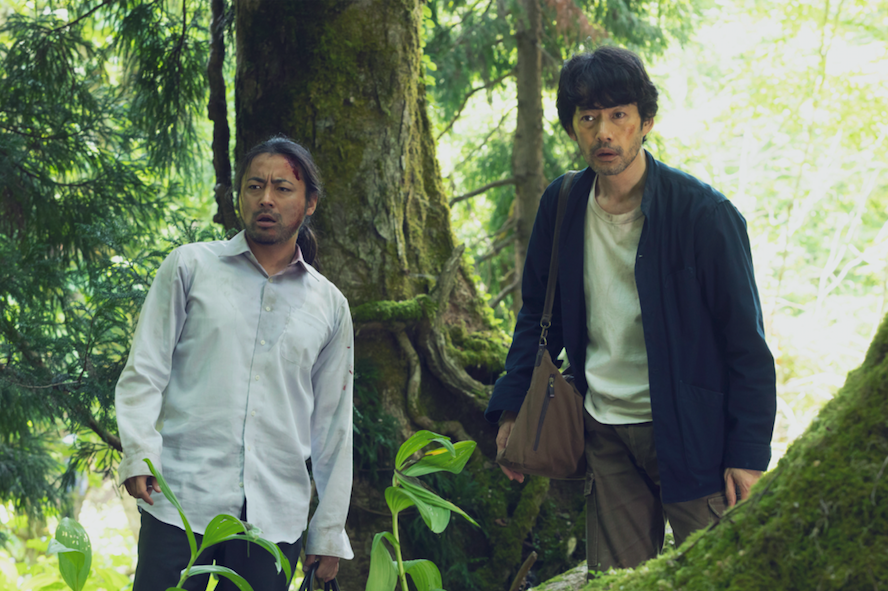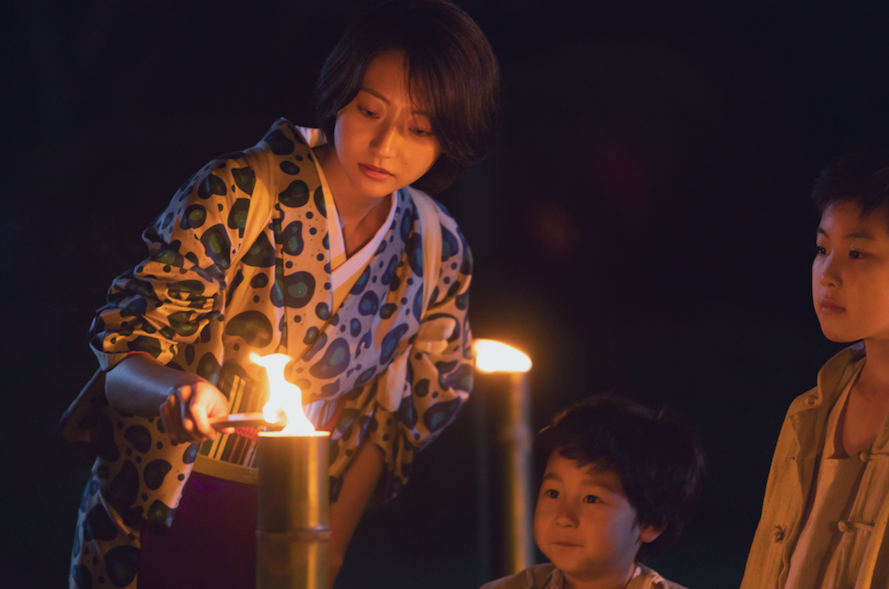
Japan Cuts is now in its 17th edition and runs from July 10th until the 21st. The largest showcase of contemporary Japanese cinema in North America and annual highlight of New York’s cinema scene, keeps getting better. This year’s line-up includes Six Singing Women, which is the first feature film in over a decade from multi-hyphenate artist and Japan Cuts alum Yoshimasa Ishibashi — the previous film being the 2011 Milocrorze: A Love Story.
Six Singing Women is a mystery drama that follows Tokyo-based photographer Shinichiro Kayashima (Yutaka Takenouchi). The man, upon learning of his estranged father’s passing, is summoned to the mountains to sell his remote childhood home to shady real estate developer Ryo Uwajima (Takayuki Yamada). After completing the contract formalities, while driving home on a remote mountain road, the car crashes on some rocks keeping the two men hostage of the woods. Six beautiful women, who live in this forest, appear before them. No matter what they ask, these ladylike presences don’t answer and continue to behave strangely in front of them.
The men who have wandered into a strange land try to escape and start reacting differently to what happens to them, providing a greater understanding of how humanity interacts with nature. In fact, Shinichiro Kayashima is calm and maintains his humanity even in the midst of chaos, thinking, “Maybe we were brought here for a reason”; whereas Ryo Uwajima tends to his desires in a selfish and violent way, becoming abusive to the women.
If in Homer’s Odyssey the protagonist was lured by the singing of the mythological female creatures known as sirens, in this film we don’t ever hear or see the women literally singing, actually they never utter a word. Their singing pertains to a more spiritual dimension, one of awakening and warning. Thus, the matriarchal energy is conveyed through the brilliant performances of Asami Mizukawa (The stabbing woman), Aoi Yamada (The wet woman), Misaki Hattori (The woman who scatters), Minori Hagiwara (The woman who bares her fangs), Momoka (The woman who stares), and Rena Takeda (The enveloping woman also in the role of Kasumi Sakisu, Shinichiro’s girlfriend).

These six women turn out to be nature’s incarnations of catfish, pit vipers, owls, dormice, bees, plants, and other creatures disguised as humans. They embody the concept of ecofeminism that sees the female gender as the nurturer, just like Mother Nature, whilst the male presence tends to dominate and exploit nature.
All the ideas of Françoise d’Eaubonne who — in the Seventies — spoke of a special connection women share with nature and how toxic masculinity is the cause of destruction, seem to transpire in the latest work of writer-director Yoshimasa Ishibashi. However, the Nipponic filmmaker provides us with two categories of men, the eco-heroes (represented by Shinichiro Kayashima and his father before him) and the eco-villains, epitomised by all the characters who want to transform the forest’s active fault in a nuclear facility.
The supernatural female entities are there to educate the men, on how unprincipled it is to destroy natural resources for one’s benefit. Hence, the film celebrates the Gaia Hypothesis, according to which our planet is a living organism that affects and is affected by the actions of all its Earthlings. The holistic connections portrayed in the film are conveyed also through the otherworldly music by Kenji Kato. The choice to get NAQT VANE involved in the score couldn’t be more fitting. The synergy between music producer Hiroyuki Sawano and vocalists Harukaze and Yunoa has brought to life the evocative Nightingale song that is both haunting and inspiriting.

The beautiful visuals that capture the majestic Japanese landscape and the suspenseful denouement of the story, enhance the environmental message. Hence, Six Singing Women is a supernatural eco-thriller that serves as a cautionary tale to the way, as humans, we are mistreating the planet.
Final Grade: A-
All photos are provided by the courtesy of Japan Cuts.

